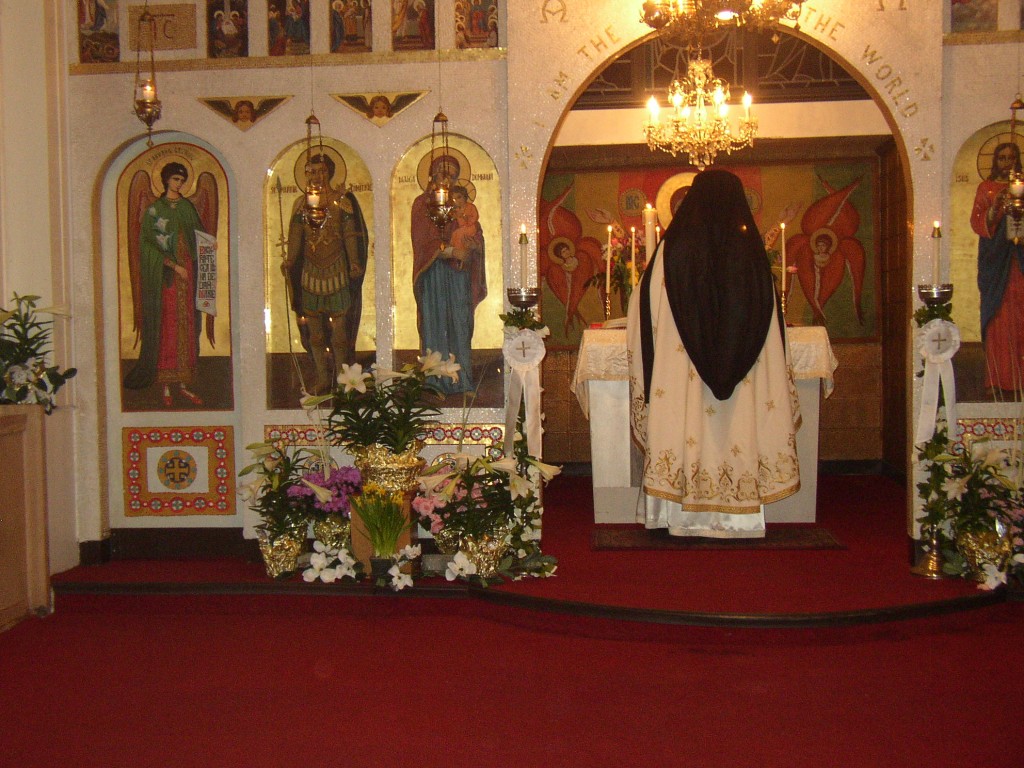 In my last essay, I began a study of the differences between the Orthodox Monastic Spirituality and the Orthodox Lay person’s Spirituality. There is indeed a difference between the two, and as I mentioned in the last essay I think we do not talk about the differences enough.
In my last essay, I began a study of the differences between the Orthodox Monastic Spirituality and the Orthodox Lay person’s Spirituality. There is indeed a difference between the two, and as I mentioned in the last essay I think we do not talk about the differences enough.
In this essay, I will compare and contrast the differences in prayer and fasting. As I mentioned, we are all called to pray and fast. The Church has set aside times of the Church year for us to focus on fasting and the work that needs to be accomplished during the fast periods. Fasting is not supposed to be penitential but is to enable us to reject the passions. The Church Fathers write about the need to deny ourselves in order to get the passions in check. The fast periods of the church, or more appropriately the abstinence periods of the Church, are penitential but fasting in and of itself is not.
The Church calls us to fast and abstain all Wednesdays and Fridays of the year, with some exceptions. Wednesday is to remember the day that Judas betrayed Christ and handed him over, and Friday is to bring to mind the Crucifixion. On these two days, we follow the strict abstinence from all meat and dairy products to include eggs. We also abstain from alcohol and oil. But we should also limit the amount of food that we consume on those days. Hunger is to remind us of the need to pray and work to gain control over the passions that can control us. The amount of food we eat is the one thing that we can control and the fathers say that if we can control that then the work on the passions can begin. Traditionally Orthodox monastics do not eat meat at any time during the Church year. They also abstain from eating fish except on high feast days.
This fast is separate from and not connected to the Eucharistic fast. In traditional practice, the Eucharistic fast is nothing by mouth after midnight on the day before communion. That would mean that after midnight on Saturday, we can have nothing by mouth. That means no Sunday morning coffee before Church! However, if you take medication and you need to drink water or eat some food then by all means you need to follow the direction of your physician.
As a spiritual father, to many people I always suggest starting slow and work up to what the church advises. My opinion is that we all should be doing something and the fast as I have presented it here is a goal for us all to attempt to achieve and we can reach it if we work at it. But we need to start slow and build on what we have perfected. As with all things, consultation with your spiritual father is essential.
Prayer is another aspect where the lay state and monastic state are separate. St. Paul writes that we are to pray continuously, and I agree with what St. Paul has written. We should, regardless of our state of life, be praying at all times and all places. But what of liturgical prayer? Our prayer life needs to include more than just Sunday morning Liturgy or Saturday evening Vespers. We need to pray each day as the Church asks us too.
One excellent resource for this prayer is contained in the Orthodox Study Bible. Located in the back of the Orthodox Study Bible is a short and easy morning and evening prayer. If prayed each day this should take no more than 15 minutes each. As I said about fasting, start small with just the morning or evening prayer and build on it as you go. Quality of time is better than quantity of time. Spending 15 minutes of your day in prayer and conversation with God will have a substantial impact on your day. I recommend the prayers of the Church rather than extemporaneous prayer because these prayers are the ancient and traditional prayers of the Church and are prayed by people in all corners of the world at all times of day and by praying these prayers we are participating in the prayer life of the Church. As you progress include the Psalm for the day and the Lectionary Readings.
Monks are called to several hours of prayer, both communal and private, each day. St. Benedict in his rule for monasteries writes that the day should be half spent in work and half spent in prayer. Ora et labora is what he calls for, work and prayer. Our prayer should be work and our work should be prayer. Lay people can practice this if their particular situation in life allows it, but not everyone can or should try this kind of life.
All of these practices should be done in consultation with your spiritual father. If you do not have one then get one, but start with your parish priest.

I like the idea of starting out slow and building up….I have been mostly faithful in morning prayers and somewhat faithful in noon prayers…I guess I have to build up to evening prayers! Time to put down the kindle and pick up the prayer book!
As for fasting, I confess, I really do none of that!
BTW, I love the new look of your blog!